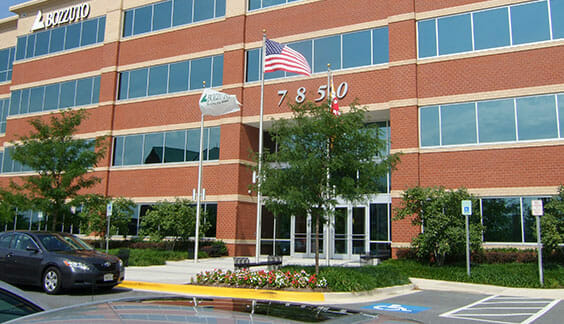Facing Assault and Battery Charges in Maryland? We Can Help
Have you or someone you love been charged with assault? Are you unsure of what to do next? At Houlon Berman our attorneys are some of the top criminal lawyers in Maryland and will provide you with the personal assistance you need to ensure that your case is handled with the attention it deserves.
Assault and battery charges in Maryland have serious consequences that can include significant jail time. We will work closely with you to provide a solid defense against these charges.
Reach out to our attorneys today to help you understand assault charges in Maryland and provide the legal advice you need.
What Constitutes Assault?
According to Maryland’s criminal law code, assault is defined as the harmful or unwanted touching of another. In Maryland, battery is one form of assault. While assaults are typically misdemeanors, they can be promoted to felonies when the assault causes, or attempts to cause, serious bodily injury or includes the use of a firearm.
To be treated as assault, your actions must be considered reckless or intentional. If the assault involves the fear of battery, you must have intended to frighten the victim.
This means that even if you never meant to actually harm the victim, the intent to scare the victim can be grounds for assault charges.
It is deemed assault when:
- someone commits battery (undesired physical contact with another)
- someone attempts to commit battery
- someone puts another person in fear of potential battery
Types of Assault Charges
Different types of assault charges are based on the severity of the incident and include first degree assault, second degree assault, and reckless endangerment. Variations of assault and battery charges reflect different circumstances and have specific penalties.
First Degree Assault
First degree assault is the most severe. Actions that lead to charges for first degree assault in Maryland include:
- attempting to cause serious physical harm to another person
- causing serious bodily harm to another person intentionally
- using a firearm in an assault
In these cases, serious physical harm includes injuries that could cause permanent damage or death.
Maryland’s criminal law code states that first degree assault is considered a felony and carries a sentence of up to 25 years in a state prison.
Second Degree Assault
In Maryland, assault in the second degree applies to those assaults that do not meet the requirements of a first degree assault. While this offense is considered a misdemeanor, it carries a sentence of up to 10 years in prison, a fine of up to $2,500, or both.
The punishment for second degree assault changes if the victim is an on duty law enforcement or probation officer. As a penalty for assaulting an officer, you face up to 10 years in prison, a fine of up to $5,000, or both, and the action is considered a felony.
Reckless Endangerment
Maryland law defines reckless endangerment as placing another individual at risk of serious physical injury or death, or discharging a firearm from a motor vehicle which exposes others to these risks.
Reckless endangerment does not consider intent. You can be charged even if you had no intention of hurting the victim because you did nothing to prevent the individual from being harmed.
Reckless endangerment in Maryland is a misdemeanor and carries a sentence of up to 5 years in prison, a fine of up to $5,000, or both.
Potential Defenses Against Assault and Battery Charges
Your defense will depend on the facts of your case. However, there are several strategies to defend against assault charges, such as self-defense, affirmative defense, a lack of a credible threat, and mistaken identity. These are discussed below.
Self-Defense
Self-defense is a plausible defense against an assault charge if you were attacked and only acted to protect yourself. Maryland self-defense laws apply when you used force proportional to the threat at hand. If you have used excessive force, you cannot employ this defense.
Affirmative Defense
With an affirmative defense, you admit to committing the assault. It maintains that you assaulted someone in an attempt to prevent them from hurting you or someone else. It also applies if you are required to use physical force to prevent someone from stealing or committing some other criminal act.
No Credible Threat
This defense can be used when there was no plausible threat of injury or when the victim never truly feared injury. For example, this could apply if the victim had actually consented to the action, and therefore was never truly afraid of your actions.
Mistaken Identity
The mistaken identity defense can be used when it is unclear who was involved in the assault. This defense is often used in public situations such as bar fights, or in any event where the authorities cannot be completely sure of who participated in the assault.
Contact Houlon Berman
At Houlon Berman, we examine each case thoroughly to ensure that we can provide the best possible defense. If you’re facing assault and battery charges in Maryland, we will work with you throughout the process to ensure that you receive the service you deserve. Our attorneys can be the difference between freedom and years in prison.
Go from Assault Charges to the main Criminal Law page
Return to the Houlon Berman Homepage


